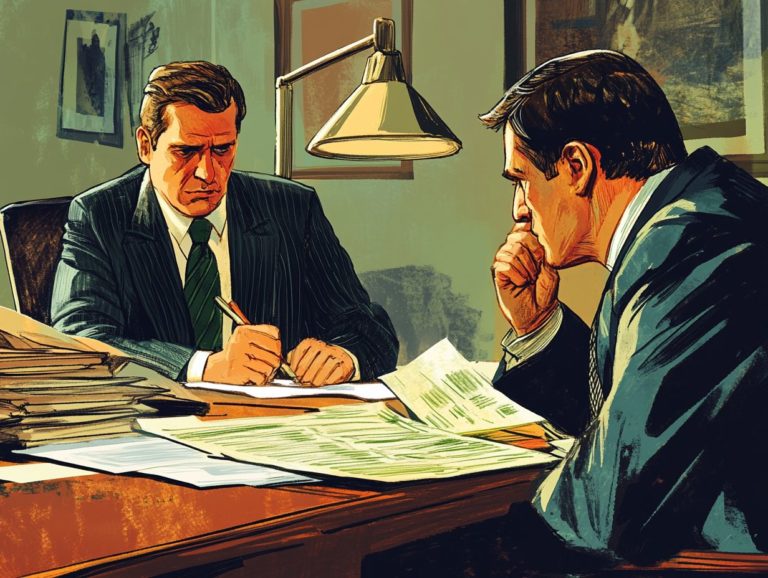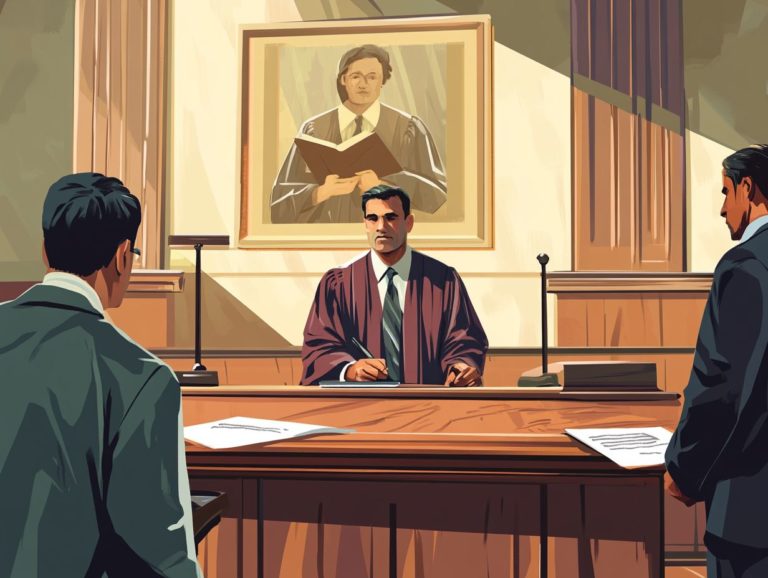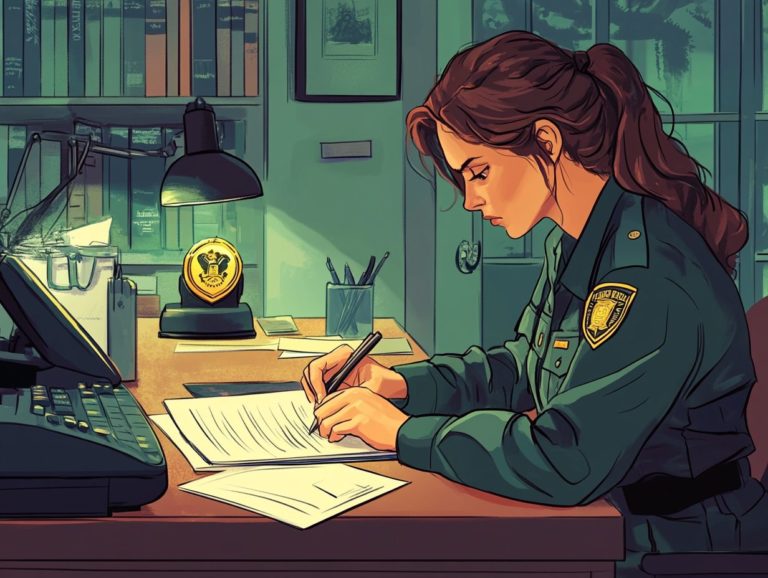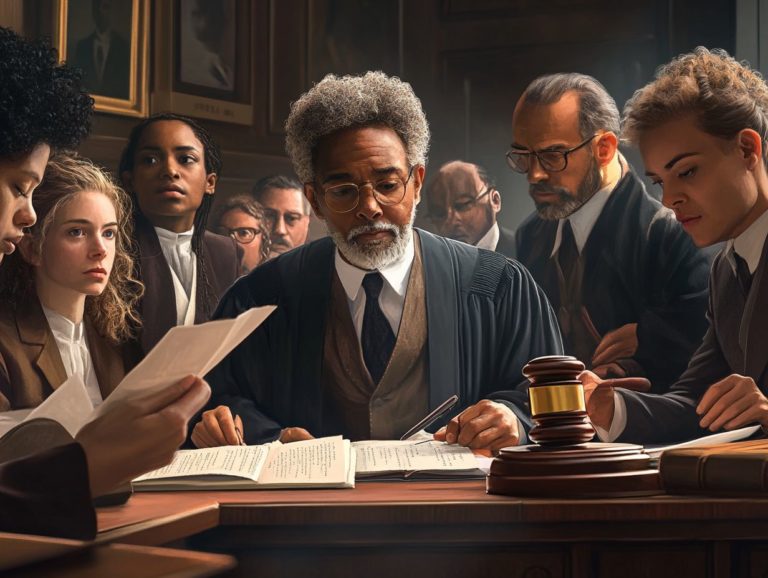What Should You Know About Testifying?
Testifying can indeed be a challenging experience, whether you re in a courtroom, at a deposition, or during a formal inquiry.
Understanding what it means to testify, the various types of testimony, and how to prepare is essential for anyone called to share their story.
This article explores the fundamental aspects of testifying, including its definition, purpose, and strategies for delivering impactful testimony.
It also addresses common challenges and legal considerations, empowering you to feel confident and informed as you navigate this process.
Contents
- Key Takeaways:
- Understanding Testifying
- Preparing to Testify
- Types of Testimony
- Tips for Giving Effective Testimony
- Challenges of Testifying
- Legal Considerations
- Frequently Asked Questions
- What Should You Know About Testifying?
- What are the important things to know before testifying?
- Is it necessary to tell the truth when testifying?
- What should I do if I don’t understand a question while testifying?
- Can I bring any documents or notes with me while testifying?
- What should I do if I am feeling intimidated or threatened while testifying?
Key Takeaways:
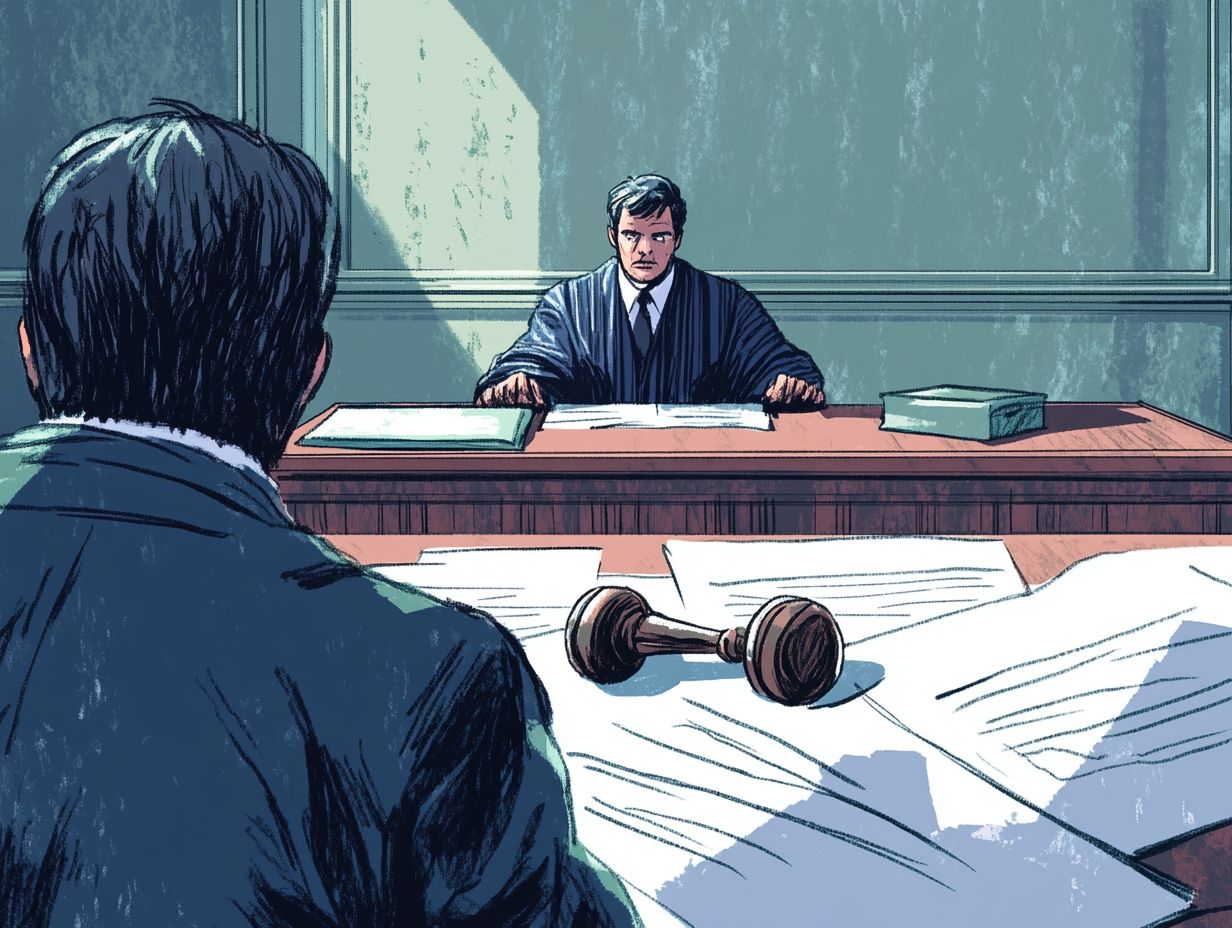
- Testifying is the act of providing information or evidence in a legal setting.
- It helps establish the truth and informs decision-making.
- Preparation is key: familiarize yourself with the case and your role, practice communication techniques, and understand the legal process.
- Different types of testimony may include oral, written, and expert testimony, each requiring specific skills and knowledge.
Understanding Testifying
Mastering the art of testifying is crucial for navigating the complex criminal justice system, especially in Marquette County, Michigan. Here, witnesses like Diane Ziegner must deliver their testimonies with precision and clarity.
As an effective witness, you need to communicate your statements truthfully while maintaining a professional demeanor in court to ensure your credibility and leave a positive impression.
Whether you’re preparing for direct examination (the initial questioning) or facing cross-examination (the opposing lawyer’s questioning), focusing on attentive listening and providing accurate responses can greatly influence jury perception and potentially sway the case’s outcome.
Definition and Purpose
Testifying is a key act where you give evidence as a witness in a courtroom, playing a vital role in the criminal justice system.
When called upon, you share testimony about the facts of a case, providing firsthand accounts or expert opinions that aid juries and judges in making informed decisions.
This act goes beyond storytelling; it represents a serious responsibility to present truthful and accurate information under oath. Doing so not only strengthens the evidence’s credibility but also supports fairness in legal proceedings.
Your testimony can significantly impact many cases, reinforcing the integrity of the judicial process. Every detail you provide is crucial in the pursuit of justice, emphasizing your essential role in the courtroom.
Preparing to Testify
Preparing to testify is a critical step that involves several key elements, including reviewing your statements, understanding courtroom rules, and seeking legal counsel to ensure a smooth experience on the witness stand.
To effectively convey the truth, it s important to dress appropriately and remove any distractions that could hurt your credibility. This preparation is vital not only for your comfort but also for making a favorable impression on the jury.
Steps to Take Beforehand
Before entering the courtroom to testify, it s important to follow several essential steps to deliver your testimony with confidence and accuracy.
Start by reviewing your statements to refresh your memory on key details. Practicing mock testimony sessions can be particularly useful; this allows you to rehearse answers to potential questions that might arise during cross-examination.
Familiarizing yourself with the courtroom environment and understanding courtroom etiquette can help alleviate any anxieties you may have. By exploring effective communication techniques, you can enhance your clarity and persuasiveness, ultimately fostering a credible and impactful presence on the stand.
Types of Testimony
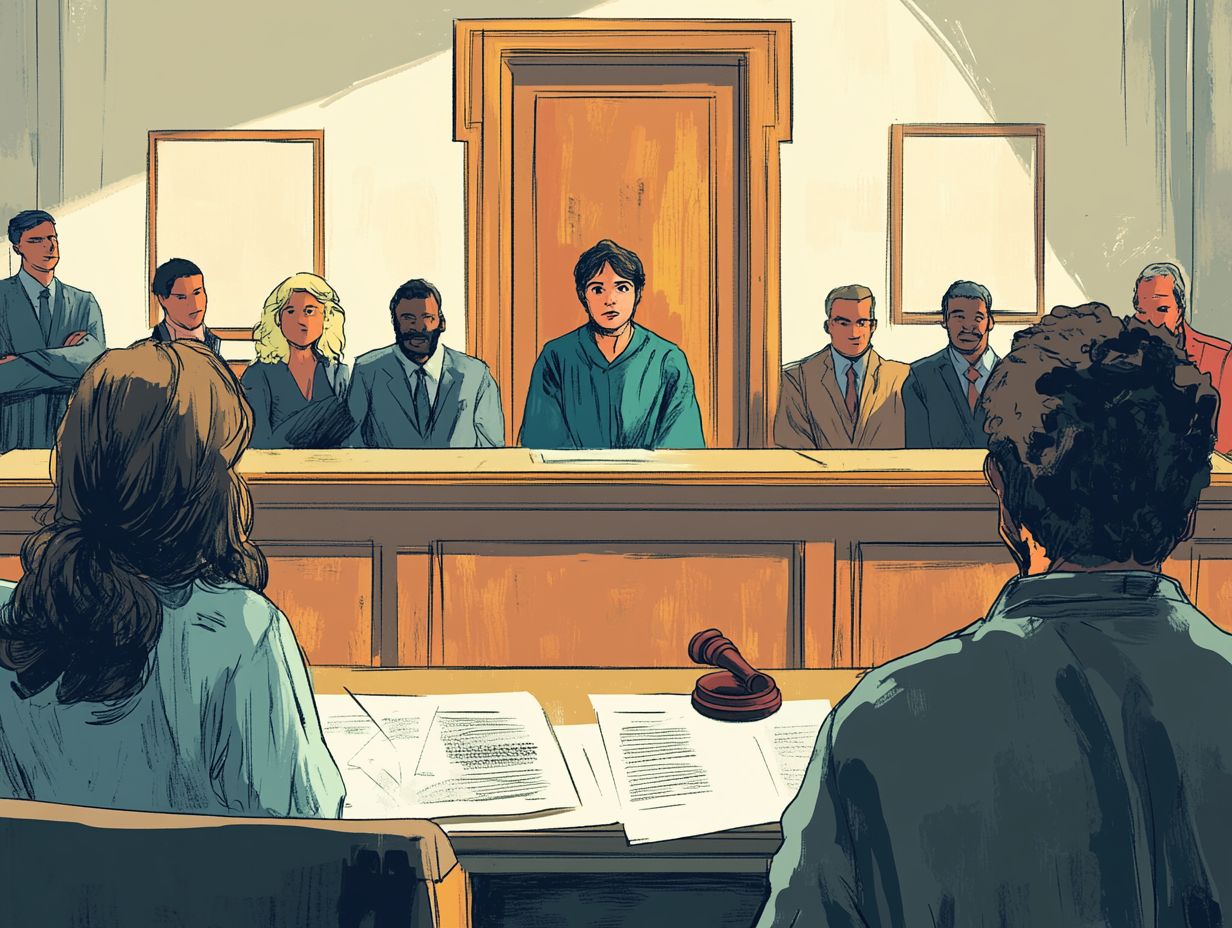
Testimony can be classified into various types: oral, written, and expert testimony. Each type fulfills distinct roles within the courtroom process.
To be an effective witness, you must understand these categories. This knowledge helps you convey your truths with clarity, whether you’re on the witness stand or writing a declaration.
Oral, Written, and Expert Testimony
Oral testimony is the most common form presented in court, where witnesses share their accounts verbally. This type carries weight in legal proceedings, as it allows jurors to assess credibility based on demeanor, tone, and ability to handle pressure.
You ll also see other formats, such as written affidavits, which are recorded statements submitted to the court. Unlike oral testimony, affidavits lack live questioning, making them less compelling but suitable for straightforward facts.
Expert testimony brings specialized knowledge into the courtroom, often influencing complex cases with insights that laypersons may not grasp. Each type of testimony plays a vital role, shaped by the case’s context and the goals of legal counsel.
Tips for Giving Effective Testimony
Providing effective testimony requires more than knowing the facts; you need to convey them clearly and precisely.
You must speak clearly, using communication techniques that enhance your credibility and ensure the jury understands your message.
Confidence influences how the jury perceives you, significantly impacting your testimony’s effectiveness.
Communication Techniques and Strategies
Effective communication in the courtroom relies on clarity and accuracy, which are essential for delivering strong testimony.
Under courtroom pressure, refining your ability to express thoughts clearly is crucial. Active listening can enhance your responses during questioning, helping you fully understand what is being asked.
Practicing techniques like pausing before answering and rephrasing questions can improve your understanding. By adopting these strategies, you bolster your credibility and facilitate a coherent exchange of information, aiding the pursuit of justice.
Challenges of Testifying
Testifying presents various challenges, including managing hostile questioning and the nerves often found in a courtroom.
On the witness stand, you may feel pressure, face the risk of misinterpretation, and experience stress from maintaining legal truths under scrutiny.
Acknowledging these challenges is the crucial first step toward mastering them.
Common Obstacles and How to Overcome Them
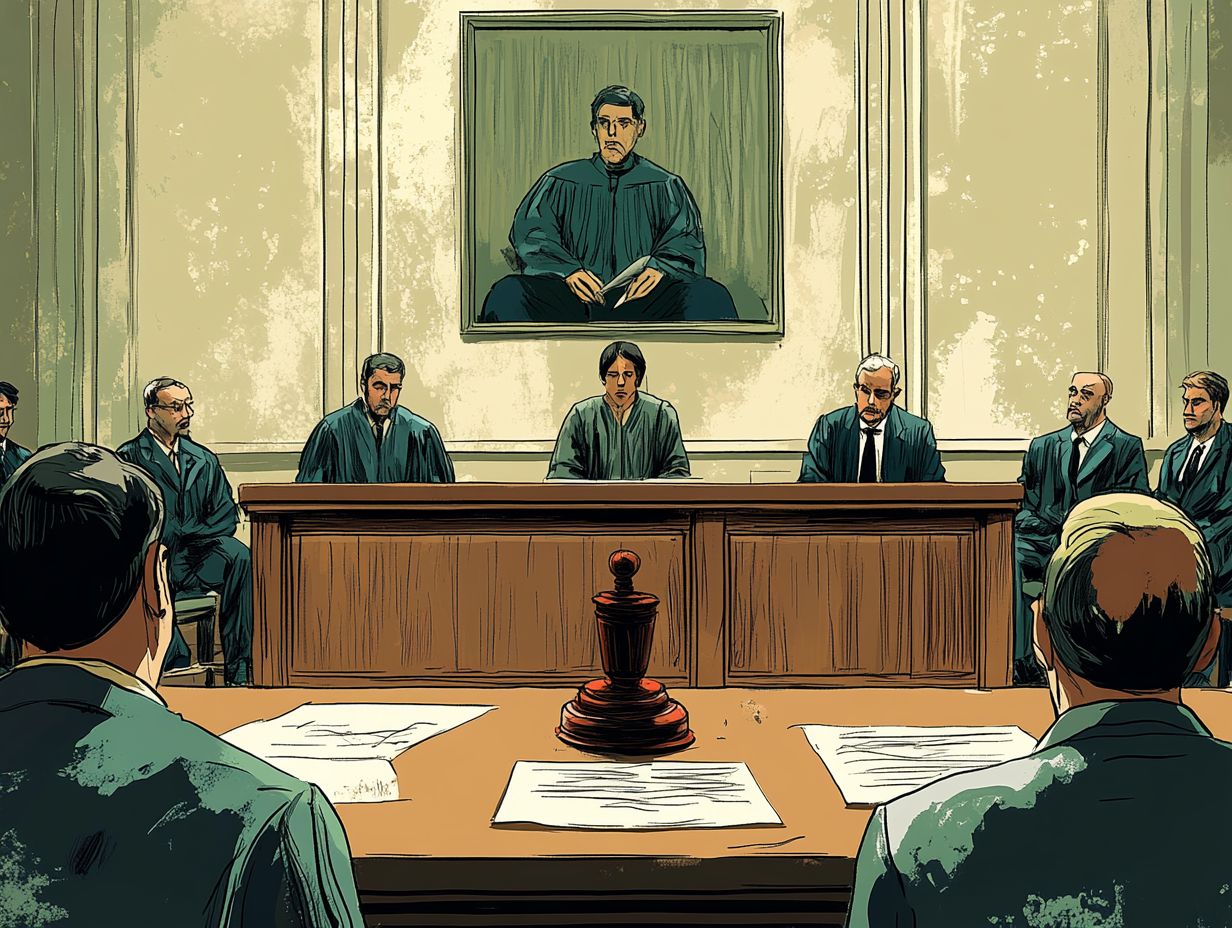
Witnesses often face hurdles like anxiety, unclear questioning, and pressure to remain composed. These obstacles can hinder their ability to present clear statements.
You may struggle with nervousness, leading to self-doubt and hesitation, ultimately affecting your demeanor. Vague or confusing questions can leave you feeling bewildered, adding to the stress.
To tackle these challenges, thorough preparation is essential. Consider participating in mock sessions that mimic the courtroom atmosphere; this practice helps refine your responses and build confidence.
Incorporating techniques like deep breathing and visualization can be beneficial, enabling you to stay calm and focused. Remember, clarity and poise in your delivery are vital for making a strong impact.
Remember, preparation is key to delivering impactful testimony!
Legal Considerations
Legal considerations for witnesses require you to grasp your rights and protections under the law, particularly about the penal code and laws against lying under oath.
Talking to a lawyer can help you understand your rights. This knowledge is essential for your safety while sharing your truthful account.
Rights and Protections as a Witness
Witnesses have specific rights and protections that are crucial for their safety and integrity when testifying in court. These rights include legal safeguards designed to prevent retaliation that could arise from their involvement in legal matters.
Understanding these protections is fundamental. They uphold the integrity of the judicial process and enable you to share important information without constant worry about potential harm.
Being aware of laws regarding lying under oath is vital. It highlights the seriousness of providing false testimony and the consequences that follow. Seeking legal counsel will help you navigate these complex rights effectively, allowing you to engage in the process with confidence and security.
Frequently Asked Questions
What Should You Know About Testifying?
Testifying means giving a statement or evidence under oath in a court of law.
What are the important things to know before testifying?
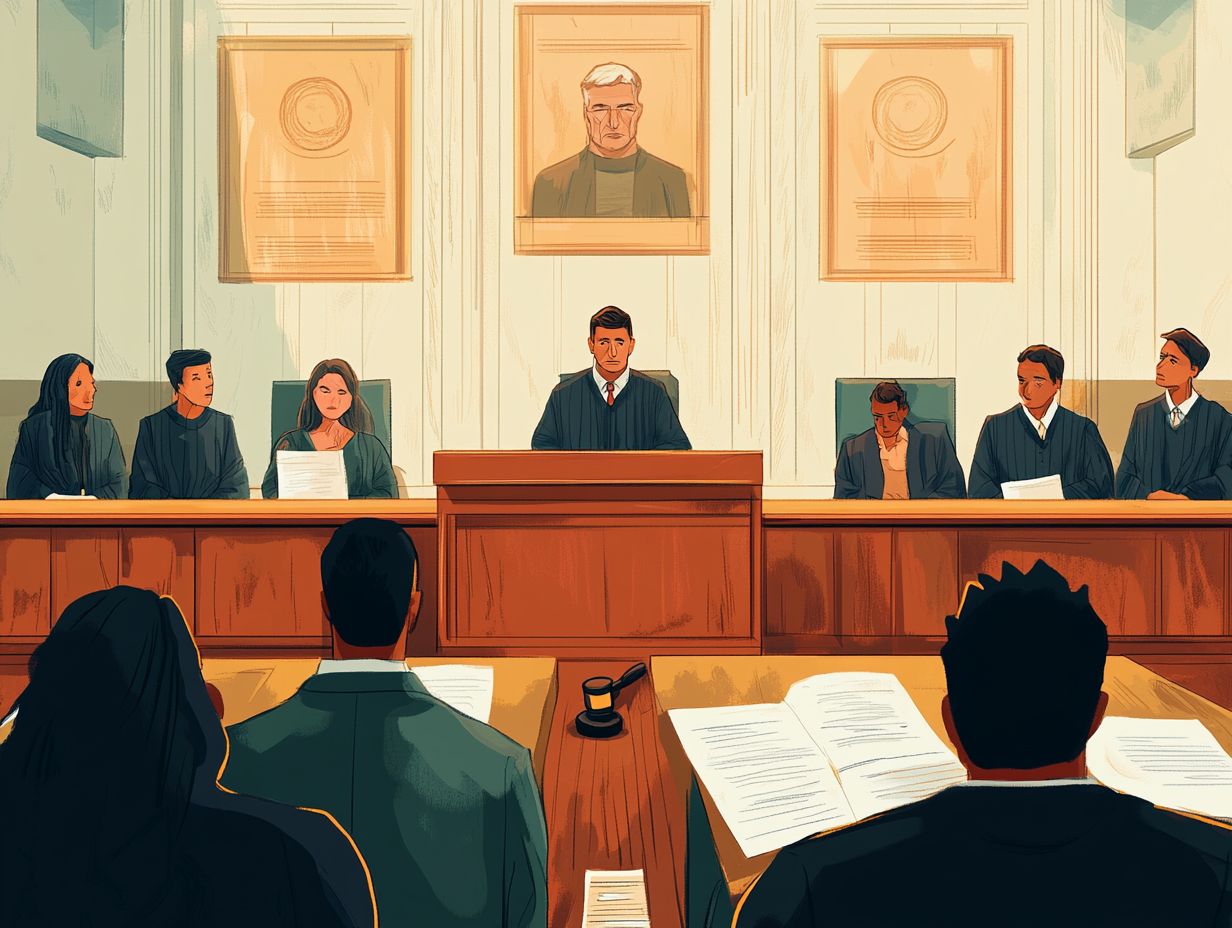
Before testifying, it s important to understand the case, be familiar with the facts, and know your role as a witness.
Is it necessary to tell the truth when testifying?
Yes, telling the truth while testifying under oath is crucial. Lying can lead to serious charges for lying under oath.
What should I do if I don’t understand a question while testifying?
If you don t understand a question while testifying, you can ask the person to repeat or rephrase it. You can also consult your lawyer if you have one.
Can I bring any documents or notes with me while testifying?
In most cases, you cannot bring documents or notes while testifying. However, some courts may allow you to refer to notes if necessary.
What should I do if I am feeling intimidated or threatened while testifying?
If you feel intimidated or threatened while testifying, inform the judge or your lawyer immediately. They can take appropriate action to ensure your safety and well-being.

